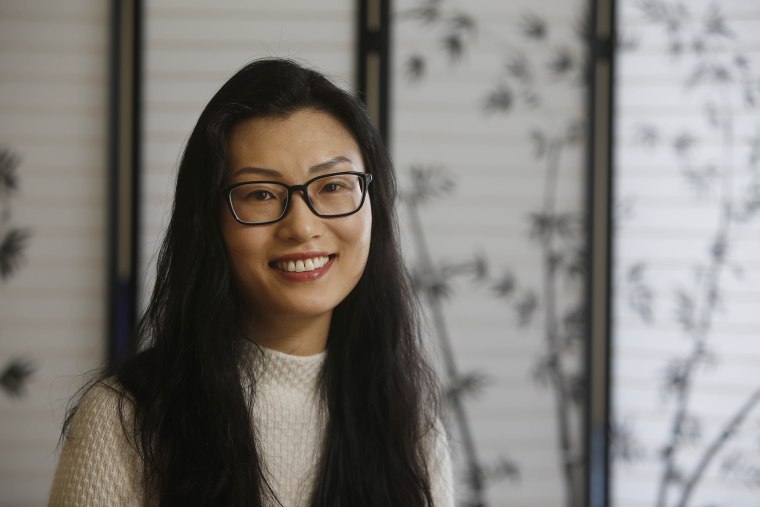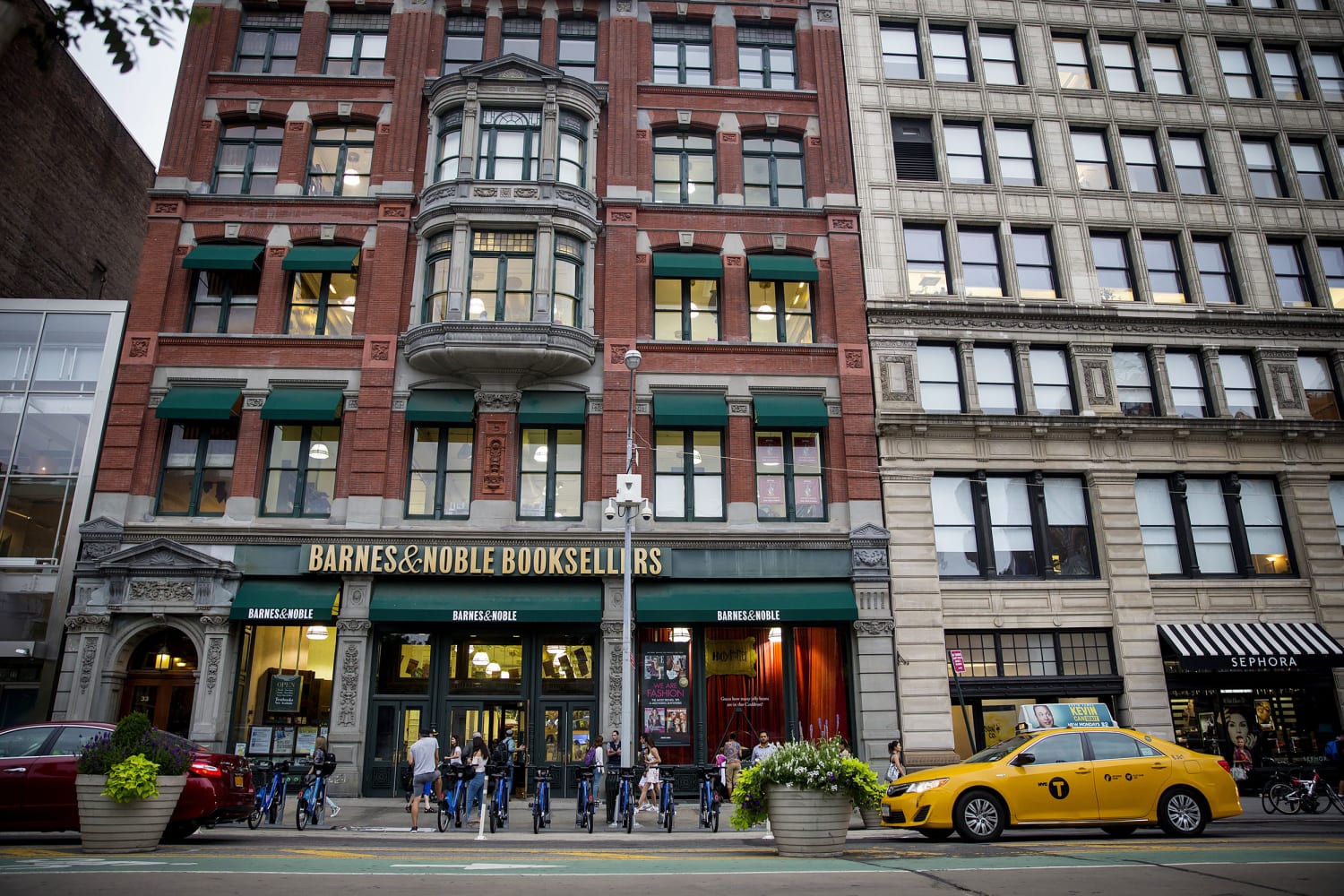A Barnes & Noble policy to limit its stock of hardcover fiction has spurred a wave of online criticism, with many people saying the move disproportionately affects debut writers and people of marginalized identities.
Three authors who spoke with NBC News confirmed with their editors that under the policy, their hardcover releases wouldn’t be stocked at the country’s largest book retailer unless they were one of a publisher’s top two bestsellers. In effect, they say, the policy harms authors of color who may not get the same marketing and institutional support as white authors, feeding into a vicious cycle that ultimately reduces their visibility and book sales.
In an emailed statement, CEO James Daunt said the policy allows Barnes & Noble “to exercise taste in the selection of new titles … and to send lower initial quantities into stores.”
The policy has been in place since September 2019, according to Barnes & Noble. But it recently drew attention on social media when author Bethany Baptiste went viral with a lengthy Twitter thread in which she called the policy a “middle finger to debut authors esp if they’re midlist & marginalized.”
“Get mad, y’all,” she wrote in the Twitter thread, which prompted hundreds of responses from fellow authors, booksellers and readers. Barnes & Noble trended on Twitter last Friday.
In his statement, Daunt said the company would also no longer take funds from a book’s sales to help promote a hardcover title across all Barnes & Noble stores, adding that the changes were intended to “empower local booksellers to replenish titles, entirely at their own discretion, an empowerment which extends, of course, to how they display their stock within the bookstore.”
“In short, each bookstore now controls how they display and arrange their stock and, as they also control the ordering, the quantities they hold,” Daunt said in the statement. “Each B&N bookstore now differs from the other as traditional, bookseller curation is exercised at the individual store level.”
A ‘Catch-22’ situation for some authors
Many authors, however, don’t see the changes as positive.
Those who spoke to NBC News said they were unaware of the policy until they saw the viral tweets.
Kelly Yang, the New York Times bestselling author of the “Front Desk” series, said she found out about the policy from her publisher.
She described it as “shocking” and took to Twitter to share her devastation over the news that Barnes & Noble wasn’t going to stock “Key Player,” the newest title of her award-winning children’s series, which comes out next month.
“Here you have a book with a huge built-in audience, and you’re telling us at the last minute you’re passing on it,” Yang said in an interview. “You really don’t have a chance to ever become one of the top one or two, because how can you if your books are not going to be [stocked]?”

Other authors echoed similar fears and frustrations, saying they believe the policy could disproportionately affect their book sales and significantly limit their visibility with their core audience (children and young teens).
Andrea Beatriz Arango, the debut author of “Iveliz Explains It All,” said it’s especially concerning because Barnes & Noble holds tremendous power as the only physical bookstore in some areas of the country.
“Often indie bookstores, depending on the area, can be very small and still very limited in what they can stock, so it’s frustrating, because oftentimes children find books by browsing stores with their parents,” Arango said.
What happens, then, is that young children and their parents are unlikely to come across new books like hers, she said.
“It’s like a Catch-22,” Arango said. “You need to have a certain number of sales to be considered one of the highest-grossing authors, but if you’re not given the visibility to get those sales, it’s going to be hard for you to get there.”
Laekan Zea Kemp, whose new book, “Omega Morales and the Legend of La Lechuza,” comes out next month, said the move ultimately gives more attention to what’s already mainstream — straight, cis, able-bodied and white-centered books — and that it can hurt authors and young readers from marginalized backgrounds.
Some statistics support those concerns. In 2018, only 11% of books were written by people of color, while 89% were written by white people, according to a 2020 New York Times analysis of the publishing industry.
Richard Jean So, an English professor at McGill University in Montreal who contributed to the Times study, said what’s defined as a bestseller for each publisher and bookseller is “a black box.”
“It’s really opaque,” So said. “Knowing how many copies a book sells is notoriously difficult. It’s not even clear that publishers and booksellers are using those standards or some other metric.”
But even if the standards were transparent, So said, numbers show that they tend “not to benefit minority writers.”
“Publishing is super white, so any selection process done for bestselling titles will probably amplify those effects,” he said.
Kemp said it could be possible that she might never sell another middle-grade novel again.
“Publishers will take one look at the numbers, and they’ll think that my middle-grade debut failed because people didn’t want to read the book — rather than the truth that they simply couldn’t discover it,” Kemp said.
She continued: “Young people will wander the shelves of Barnes & Noble looking for, and never finding, books with characters who look like them.”
Barnes & Noble CEO: ‘I disagree fundamentally’
Asked for response to the criticism, Daunt said, “I disagree fundamentally.”
He said: “The cautions expressed on Twitter recently are jumping at shadows and missing the good work going on in B&N bookstores across the country.
The cautions expressed on Twitter recently are jumping at shadows and missing the good work going on in B&N bookstores across the country.
-Barnes & Noble CEO James Daunt
“By allowing proper bookselling to take place at the store level, good books will have more space and better presentation, as well as genuine support from the booksellers of each store,” Daunt said. “When we just took what was imposed by publishers, approximately 80% of the books were ultimately returned unsold. In effect, the bookstores were filled with books customers had no interest in reading. Now we sell most of what we buy.”
Ultimately, Daunt said, he believes the policy will bring “much more dynamic support for new authors, including ones of color, than was possible before.”
As a bestselling author of several children’s books, Yang is skeptical that the policy benefits authors from underrepresented communities, particularly new ones, she said.
“If there’s no chance for me, what chance does anybody else have?” she said.
Kemp shared similar doubts.
“I just want a clear sense of where these corporations’ values truly lie,” Kemp said. “Do they value diversity and equity and inclusion? Or do they only value profits? And if they choose profit — which, as a private company is absolutely their right — I just wished they would say that.”
Source: | This article originally belongs to Nbcnews.com










